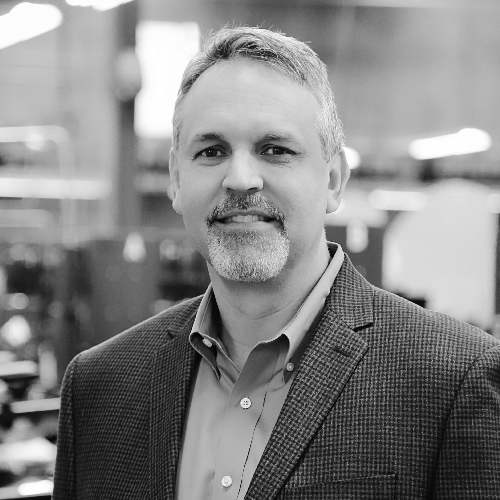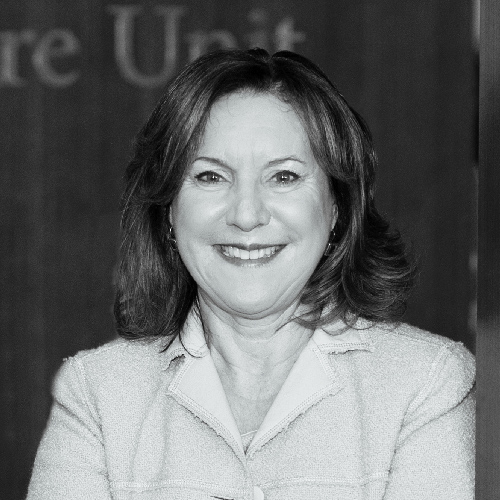Tim Dutton drew his first breath in the hospital where he now governs human resources. Yet, he considers his path to healthcare more circular than linear. In college, he was majoring in history with the idea of going to law school when a pivotal conversation around a campfire influenced his decision to jump into healthcare—his family’s history—instead. That’s when he took the suggestion to apply for a management and healthcare internship at Adventist Health System based in Altamonte Springs, Florida. He got the internship, kickstarting a meaningful career that would lead him back to the wooded suburb of Dayton, Ohio, twelve years later as the third generation in his family to join the healthcare community.
Dutton was born in Kettering, Ohio, to a nurse and a financier at the local hospital. His grandfather had served as a medic in the US Army during World War II, marrying his grandmother, also a nurse, before they joined a few hundred others in the community to form Kettering Memorial Hospital in 1964. Decades of expansion later, the Kettering Health Network now encompasses eight hospitals and 120 outpatient facilities where Dutton ensures the health and development of 12,000 employees, 1,500 volunteers, and 2,500 physicians as the VP of human resources.
“When I was a kid, I loved to collect baseball cards,” Dutton says. “I spent hours in my room putting teams together, reordering the lineup. Human resources is about creating a team and a culture, understanding roles, and thinking through what’s ideal for the organization. That’s how my brain is wired, and I love how human resources is that intersection between business and people.” His calling clicked during that first internship, and Dutton never looked back. He graduated from Andrews University with a bachelor’s degree in social studies and an MBA from Webster University, then led human resources at Takoma Adventist Hospital in Tennessee and Florida Hospital.
But in July 2011, his roots called him back to Kettering Health Network. “It was a chance for me to make a difference in the community I grew up in,” Dutton says. “I have many family members who work in diverse areas of healthcare here, and it brings us together around the dinner table, so to speak.” Two years later, Dutton was promoted from administrative director to VP of human resources, and he continues to set his sights on service.
Kettering Health Network is a faith-based nonprofit sponsored by the Seventh-day Adventist Church, of which Dutton and his family are members. The ministry’s healthcare philosophy blends education and outreach, a central force in the company as well. “We think of each patient not as a symptom or an illness, but as a person who needs healing,” Dutton says. “And not only physically—also mentally, emotionally, and spiritually. We try to create a workplace culture that not only supports and encourages our patients through quality care, but also treats our employees like VIPs, too.”
Since half of the business comprises outpatient services across ten counties, a strong culture is the unifying link. Dutton focuses on two programs: “Called to Care Orientation” and the leadership training program “Called to Lead.” His team hires about two hundred people per month, so in addition to a ninety-day onboarding program, cultural initiatives are key to individual and team success. The latter program invests in managers to cultivate effective translators of the company’s strategic vision, prepping them to align and scale teams through communication tools.
“We’re making sure our leaders know what’s happening in advance so they can help us explain the intent behind the purchase of a building, for example, or the intent behind a strategy for cardiac services,” Dutton says. “Our managers are the people that our employees go to first because they trust their managers, and they want to understand what this means for their department, personally, or for the organization—they want to be stakeholders and our managers help us accomplish that.”
Dutton cites recognition as a primary focus guiding their collective conversation across Kettering Health Network. His team encapsulates the company’s mission, vision, and values through storytelling: examples of an action of service or word of kindness are collected in culture reports. Videos highlighting stories of improvement or innovation are shared company-wide. Plus, an employee-driven, grassroots program called “Learnapalooza” engages employees in TED Talk-style knowledge shares.
“They’re not doing it because they want a headline, but we feel that by capturing those stories and sharing them, it boosts the spirit of our team,” Dutton says. “We’re a 24/7 operation. There are ups and downs; there are a lot of emotional moments just because of the nature of our work, so we’re really trying to focus on the stories—our story.” The organization’s hybrid HR structure (a centralized strategic office and experts at hospital campuses) requires clear, transparent communication.
Providing tangible ways and “emotional fuel” to connect employees to the mission is crucial, according to Dutton, as it often manifests in the communities they serve. Town halls spotlight examples of employees’ direct impact, from helping patients regain balance and motion in their bodies to all the newborn deliveries they’ve been a part of for growing families. Dutton claims being a lifelong learner and looking for win-win opportunities are key to creating a strong internal culture that provides optimal care for the external community.
Dutton adds that growing up in Kettering and being a part of the faith-based organization helps him to put people first, not rules. “We see what we do as really sacred work, and we want our leaders to understand there’s a difference between a job and a vocation—that they’re doing more than earning a living,” he says. “We strive to be more of a vocation for people who feel called into healthcare and the idea of helping the healing process for our neighbors, our friends, and our community at large.”
Taft’s Labor & Employment Group has received national recognition for the services our attorneys provide to clients throughout the country. Our team includes more than fifty attorneys who offer clients extensive experience and innovation in a variety of legal services needed to manage the complex relationship that exists between employers and employees.


